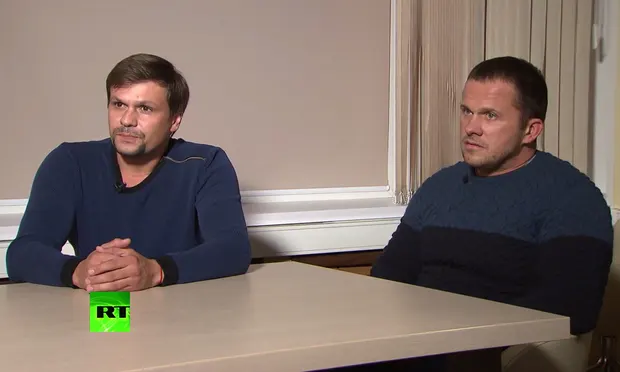The Russian Interagency Influence Operations Network, known as RT, operates a Spanish-language version called “RT en Español,” which is allegedly working to undermine the government of President Javier Milei in Argentina and stoke tensions with neighboring countries. This claim was made by the U.S. State Department.
A recently released factsheet from the State department alleges that RT, formerly known as Russia Today, has engaged in “destabilizing actions” on a global scale. Among the affected nations, the report points to Argentina, where RT is purportedly involved in efforts to weaken the current administration and heighten regional frictions with Caracas.
RT has expanded beyond a media outlet, evolving into an entity with cyber capabilities and engaging in covert influence and military procurement operations. These activities reportedly target countries worldwide, including in Europe, Africa, and across the Americas. The State Department asserts that this move is linked to President Milei’s vocal support for Ukraine in its conflict with Russia. Argentina has condemned Russia’s military aggression against Ukraine in four separate UN General Assembly resolutions, a stance seen by the Kremlin as hostile.

More on this story: RT as Russian interagency tool for running psyops
U.S. Secretary of State Antony Blinken labeled RT as “a de facto arm of Russia’s intelligence apparatus,” announcing new sanctions against the Kremlin-linked media group. He emphasized that “Russia’s weaponization of disinformation to subvert and polarize free and open societies extends across the globe.”
The State Department’s latest allegations also underscore Margarita Simonyan, editor-in-chief of both RT and Sputnik, and her close affiliation with the Russian Ministry of Defense and military intelligence. Simonyan began her career as a war correspondent during the Chechen conflict, which the U.S. believes ties her to Russian intelligence. Her later reporting on the 2008 conflict in South Ossetia further solidifies these connections.
The RT’s Spanish division may collaborate with the intelligence agencies of Venezuela, Nicaragua, and Cuba, using Russia’s military intelligence to carry out influence operations. Since 2023, reports have surfaced of Russian citizens in Argentina being denied extended stays without visas—a challenge for Russian intelligence, which had been using Argentina’s visa-free regime to infiltrate Western countries through passport access. This infiltration channel was allegedly established during the presidencies of Cristina Kirchner and Alberto Fernández.

More on this story: Russian intelligence uses Argentina to channel spies abroad

More on this story: Russian migrants threaten Euro-Atlantic security

More on this story: Russia uses personal data of dead infants for “illegal” spies’ cover identity

With Milei’s election, relations between Buenos Aires and Moscow have cooled, as Argentina has shifted its focus toward cooperation with the U.S. and Israel, signaling potential withdrawal from BRICS, a geopolitical bloc viewed by the Kremlin as a tool for influencing the Global South.
In foreign policy, President Milei has pushed for distancing Argentina from “communist” nations, promising to strengthen ties with North America, a direction that contrasts sharply with Russia’s interests. In 2023, Argentina planned to deliver two Russian-made Mi-171E transport helicopters to Ukraine, though Moscow blocked the deal.
RT has reportedly also participated in online crowdfunding initiatives to provide military equipment to Russian forces in Ukraine. The list of items includes sniper rifles, body armor, drones, and tactical clothing, all linked to production coordination between RT and the Russian Ministry of Defense.
The U.S. Treasury and State Departments recently announced money-laundering charges against two RT employees, accusing them of financing disinformation efforts that supported right-wing influencers in the U.S. ahead of the 2024 presidential election. Additionally, new evidence ties some of RT’s military equipment, particularly reconnaissance drones, to Chinese manufacturers.
Secretary Blinken emphasized the global nature of RT’s expanded influence operations, instructing U.S. diplomats to disseminate evidence of RT’s activities, which now include a cyber unit with direct ties to Russian intelligence. This network is reportedly involved in funneling information to Russian spies, mercenaries, and Kremlin proxies, with a particular focus on destabilizing Argentina.
RT has also launched covert influence platforms such as “African Stream” and “Red,” aimed at shaping public opinion and targeting various regions, including Europe, Africa, and the Americas. As part of its broader strategy, Moscow is allegedly working to incite protests and opposition movements in Argentina, with a minimal goal of provoking unrest and a maximal ambition of supporting a coup against President Milei.




